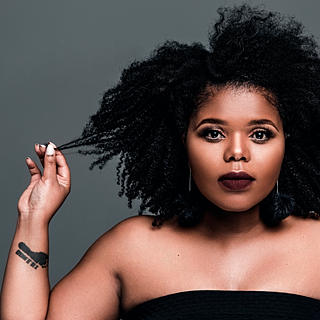My Journey with Conscious Parenting
- Dawn Faith
- Mar 24, 2025
- 4 min read
My daughter has always been that girl—for as long as I can remember, she has known exactly who she is and what she wants. I could tell story after story of moments where, even at the age of two, she was already carving out her own path, undeterred by what either her father or I had to say.

The topic of parenting has been on my mind a lot lately, especially after attending a luncheon over the weekend hosted by Church Girls Who Rock. The theme was Strength, Courage & Wisdom, and one of the conversations that stood out was around parenting. The ladies were keen to understand what approach or school of thought I’ve applied in raising my children.
As I shared with them, Nic and I have adopted the Conscious Parenting method, made famous by Dr. Shefali Tsabary. Dr. Shefali, a clinical psychologist and author of The Conscious Parent, challenges traditional parenting norms by shifting the focus from controlling our children to understanding ourselves. She teaches that children arrive in this world already whole and complete—and most importantly, that they are not an extension of us or a vessel for our unfulfilled dreams.
This resonates deeply with me as a Christian because it aligns with what my faith teaches me: that before my children were even in my womb, they were already known by God. He had already walked and worked out their path, and my role is not to impose my own vision onto them but to nurture, love, and hold space for them as they uncover who they were created to be.
And if there’s ever been a child who has reminded me of this truth, it’s Ndalo.
From the moment I could fully perceive her, she has existed with clarity about herself. Now, at five years old, she moves through the world with a confidence that leaves me in awe. I often feel like I’m the one trying to catch up to the knowledge she already carries.
But this also makes parenting challenging. Because isn't our natural inclination to shape and mould our children? To shake out the parts that seem out of order and replace them with what’s “proper”? Yet, when we live in a world full of contradictions—when our own upbringing was shaped by both love and trauma—how do we dare believe we alone can set the standard? Do we even know what the standard is?
This is the tension I sit with as a mother. The pull between guiding and controlling. Between teaching and allowing. Between protecting and trusting.
With Ndalo, I’ve realized my job is not to shape her into someone else but to be a mirror—reflecting back to her the strength, wisdom, and beauty she already carries. The Conscious Parent method has challenged me to shift from reacting to responding. To pause before I project my own fears, insecurities, or outdated beliefs onto her.

It’s not easy. When she asserts herself in ways that push against my instincts, my first reaction is often frustration. But when I take a step back and ask myself, Why am I resisting this? What am I afraid of?—I realize it has little to do with her and everything to do with me. My own childhood wounds, societal conditioning, and fears of judgment come rushing in.
And that’s where the real work begins. Conscious Parenting is as much about raising my children as it is about re-parenting myself. About breaking generational patterns and choosing a different way. So, when Ndalo tells me she doesn’t like an outfit I picked, or when she challenges a rule and asks why—I remind myself: this is not defiance, but self-awareness. It’s not disrespect, but confidence. And as much as it stretches me, I know it is a gift.
Raising children this way requires trust—trust in them, trust in myself, and ultimately, trust in God’s plan for their lives. My faith reassures me that my children are not mine to possess but mine to guide and love as they step into their own destiny.
Beyond my own home, I often wonder—what would our world look like if more of us chose to raise our children this way? Imagine a generation raised without the weight of inherited trauma. A world where children grow up knowing they are enough, exactly as they are. Where they are taught not just to obey, but to think. Where they learn to trust themselves, express their emotions, and navigate challenges with resilience. If we all embraced the concept of Conscious Parenting, we would see a radical shift in our homes, our communities, and the world at large.
We would hopefully see fewer mental health struggles rooted in childhood wounds. We would raise adults who are emotionally intelligent, self-assured, and secure in who they are. Imagine a society with less selfishness and intolerance, and more empathy, courage, and wisdom. Because when we raise children who are free to be themselves, we raise a world that is free to be better.
And so, I continue this journey, learning as I go. Some days I get it right. Other days, I fail miserably. But if I can raise my children to remain connected to who they truly are—to the wholeness they were born with—then I know I have done my job well.
Have you come across the Conscious Parenting method before? What has been your biggest challenge in raising children with this kind of awareness? I’d love to hear your thoughts—let’s talk in the comments!





















What great food for thought Dawn!